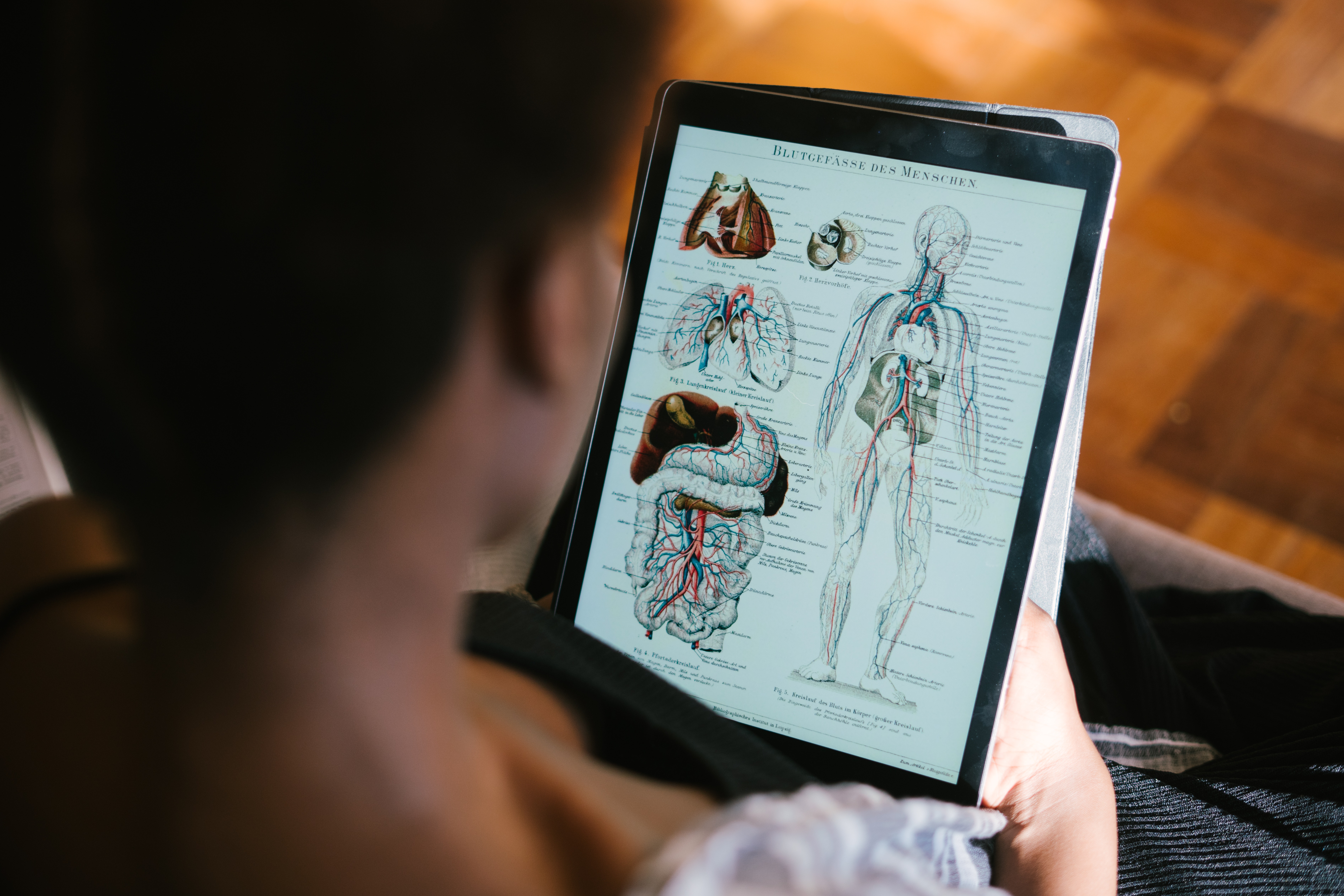StudyingMedicineInTurkey.com
Welcome to the blog of StudyingMedicineInTurkey.com
Study
Medical course program:
The medicine study in Turkey is similar to the European form since Turkey has agreed with the Bologna conditions in 2001 and became a member of the European higher education area. The Bologna process composes of a series of agreements to ensure more compatibility and integrity in the higher education system within Europe. The Bologna process not only includes members of the European Union, since it has opened up to countries outside Europe too such as Turkey in this case but also countries like Russia, Kazakhstan, and Ireland. It should also guarantee the recognition of the equivalence of the degrees. The members of the European higher education area are still able to set their additional criteria, which must be clearly defined and accessible.
The Turkish medicine study is composed of six years, of which the first 3 years are referred to as the preclinical phase. There the student acquires wide-ranging knowledge about fundamental subjects such as Biology, Biochemistry, Anatomy, and Physiology. In the first year, the fresh students attend lessons in subjects like medical biology, chemistry, biochemistry, and anatomy. In the first weeks of the first-semester revision of high school knowledge in biology and chemistry is done. You are going to repeat stuff such as protein biosynthesis, the molecular structure of proteins including enzymes, and the chemical structure of carbohydrates as an example. In the second semester of the first year, the first anatomy lessons begin. You start learning the bones in detail. In general, I can say that the subject matter is not kept as superficial as in high school. In contrast to high school, the lessons in university are covered deeper and the specific processes are explained more in detail.
There is a widespread thought that the study of medicine is mostly composed of memorizing, which in general is not false. Memorizing plays a very important role in some subjects like anatomy or microbiology, where you have to memorize nearly everything about the structure of bones, their several compartments, the muscles attached to them, and their corresponding nervous innervation of the specific names of bacteria or viruses and their related diseases in the latter case. I can assure you that blunt memorizing will not guarantee you become a „good“ doctor, but will help you to pass the exams. I noticed that students, who are better at memorizing, are passing the exams easier. This does not mean that memorizing is an absolute method for every subject. There are subjects like physiology including cardiology and pulmonology and later pathology, where the skills like deep comprehension and integration of associated body processes are required. Questions in these subjects are quite difficult because you have to understand the background mechanisms of the topic and should be able to form connections between them.
First-Year:
In the first year, you are going to attend lessons once every two weeks, where practicing physicians from our university hospital teach us about first aid including cardiac massage, ventilation, and the utilization of an automatic defibrillator. We are taught how to act properly in emergencies and to perform tests to measure vital signs. It becomes more interesting to view the practices of a doctor when learning theoretical stuff the whole time.
Corresponding to the theoretical lessons in the first year laboratory lessons are integrated every week, where you learn to apply your adopted theoretical knowledge to practical applications. For every anatomy and histology theory lesson covered a practical lesson follows before another theory lesson, which enables you to consult and strengthen your knowledge. In anatomy, the whole class is divided into groups of five and seven people, who subsequently discuss the theoretical lessons based on scaled models of the human body. In histology, two people are respectively assigned to one microscope and deal with preparations of different tissues. There are also laboratory lessons for other subjects as biochemistry, medical biology, and microbiology but are few.
Second-Year:
There is one thing many medical students from the higher years can agree with, the second year is more difficult than the first year. They compare the first year to a type of honeymoon, saying that the freshman should not put themselves under extreme pressure for the first year and should spare their energy for the upcoming years. I can agree with them. There are several reasons why? More exams, less time, and complicated topics is a summary. Starting with the first point of having more exams in the second year than in the first year. In the first year, the student has to get into five exams in total, of which two are in the first semester, two in the second semester and the last fifth one is the final exam at the end of the year. In the second year instead, there are seven exams, three in the first semester and three in the second semester plus a final exam. This means that the preparation time for one exam decreased by nearly one and a half weeks. Additionally, you are going to undergo two more stressful times in contrast to the first year. Another point, which makes the second year more difficult than the first year is that that the lessons get harder and the teachers start to dive deeper into the processes. They do not consider you as a freshman and favor using more scientific language. One of the main subjects of the second year is physiology. It differs from other subjects in that point that the focus is kept more on understanding than memorizing. You have to understand the mechanisms of our body and have to build connections between them to understand their interaction. This is the only way to pass the exams. Our teacher put much weight on the internalization of physiological mechanisms rather than their memorization.
Third-Year:
In this year the lessons change from basic sciences to a more applied scientific orientation. This is a preparation for the clinical part starting after this year. New lessons begin to appear and take the place of former lessons. Pathology, pharmacology, and more specific ones such as cardiology, pulmonology, and gastroenterology are now integrated into the curriculum. Pathology is principally similar to physiology but focuses more on the causes and effects of injuries and diseases. This becomes interesting when you learn the scientific background of familiar diseases. A simple injury everybody experienced as a kid is a complex interaction between several cellular processes.
Language-Requirements:
If you got accepted to study medicine in English at a university in Turkey, you have to prove that you cover the English requirements set by the universities. They want to prove that you are able to understand the lessons and express yourself in English. The requirements can be fulfilled in two ways. The first way is to certify that you have the required scores from internationally recognized exams, which are recognized by the university as well. The Oxford Test of English, Cambridge Certificate in Advanced English, and International English Language Testing System Academic are exams recognized by the many universities, whereby a specific point has to be achieved. This can be looked upon the websites of the universities. The other way is to take an exam done by the university, where you undergo exams in writing, hearing, and speaking. This exam is not difficult since many foreign students show to have good English skills in contrast to the average level of English in Turkey. I did have a Cambridge Certificate in Advanced English with a very high point but still chose the exam. The reason behind this is that you need to have a score above 90 to be freed by the English lessons done by the university. The certificate independent from your score does not free you from these lessons. A score less than 90 and higher than 80 means that you have to join a two-hour English lesson every two weeks. A score of more than 60, but less than 80 means that you have to attend these lessons every week. I did not want to join the English lessons and chose to take the exam and got 95 points. The exam was not difficult at all. As I have experienced and heard from the other foreign students it was very easy for them too.
Do I need to know Turkish to study medicine in Turkey? This is a question many people ask themselves when they are planning to apply for the medical course program in Tukey. Let me tell you that you are going to need to certify that you can speak, write and understand Turkish at a specific point of your study, more precisely for the fourth grade. You do not need to speak any Turkish in the first three years and do not have to gain a Turkish language certificate within that time. There is also no Turkish certificate required to apply for the medicine study in Turkey, except you are planning to study medicine in Turkey. You may ask yourself whether there are foreign people studying medicine in Turkish. The answer is “Yes”. The same amount of places reserved for foreign students in the English medical course program, the same amount is also reserved for foreign students in the Turkish medical course program. Most of the students in the latter program are from Turkic-language speaking countries like Azerbaijan, Kazakhstan, or other adjacent countries with Turkic populations such as Iran.
Our university requires a C1 Turkish certificate for every foreign student for the fourth year, which is probably the same for other universities. The certificate can be obtained by any institution offering this kind of service. As I know there are no exclusive Turkish courses offered for medical students by our university, but I think that there are general courses for students from different subjects. I do not have any difficulties in Turkish since I have learned the language from my parents and it is impractical for me to talk about the learning procedure. Our teachers often say that Turkish is not a difficult language based on the fact that it is written as it is spoken and the other way around. The foreign students I have met through the time can speak and understand Turkish in a good manner. Some I have met, who watch Turkish media, hear Turkish songs, and seek to talk Turkish with the native students, can talk Turkish very well. Three years is enough time to learn another language and reach a specific level would I carefully say, but learning a language additionally to a demanding subject of study like medicine can be quite challenging at some point. The teachers are aware of this condition and are mostly not strict concerning language issues.
This does not mean that the teaching language from the fourth year until graduation will be in Turkish, it will be still in Turkish, but internships or practical lessons in the hospital are in Turkish depending on your supervisor. Some continue to teach in English and some in Turkish. The exams are continuously held in English. You can learn more about the Turkish Proficiency exam on the side(https://www.yee.org.tr/en/content/turkish-proficiency-exam-tys)
Exam System:

There are multiple exams distributed throughout the year. They are done in the widely known form of multiple-choice tests, by which five answers are given for each question with only one being right most of the time. In each exam, 100 questions are asked, being more in the final exam, which is held at the end of the year. In the first year, four exams are taken, rising to six exams in the second year and seven exams in the third year. Additionally to the exams given before there is the final exam, where all topics from the respective year are asked again.
Indifference to other systems like in Germany, where a separate exam is done for every single subject, all topics of that section are asked at once in a single exam, referred to as "kurul" or "committee" in Turkey. The student has to get 60 points out of 100 points in each exam to "pass" the exam. The reason behind putting the word pass in quotation marks is that you do not have to pass every single exam to pass the whole year. This means that you can "fail" in one single exam by getting 40 or 50 points, but reach a higher point in another exam like 80 or 70(referring to the points given in the same sentence), and pass the whole year without redoing the failed exam or failed topics in the following year. Every correct question answered equals one point. This changes in the final exam, where 120 or 130 questions are asked with a total point of 100 remaining.
In Germany, a student has to answer 60 percent of the questions right to pass that topic. If the student does not pass the topic, the exam for that particular subject has to be passed in the following year. He/She has a limited amount of trials for each exam.
In Turkey, the student does not have to pass every single subject, instead, the exams contain multiple subjects. This means that the students do not have to get 60 percent at least in every subject included in the exam to pass it. Rather, they have to pass the exam itself and not any specific topic included in the exam. 60 percent has to be answered correctly in the exams of 100 questions each in total. Still, there is a so-called "baraj" system, meaning dam in Englisch. If you do not get 60 percent right in each topic, the points required to do so, are deducted from your score for that specific subject. Let me give an example: There is a subject we are referring to as "X" and 20 questions out of 100 questions are about this subject. If you answered 10 questions about subject X correctly, you receive 8 points and not 10 as someone not knowing the "baraj" system would think. Without this system, you would have got 10 points, but since 2 questions were missing to answer 60 percent correctly, they are taken away from your total score. So to compensate for one wrong answer, when you could not answer 60 percent of a subject correctly, you would have needed to solve 2 answers correctly on another subject. This is done to prevent students of unilateral learning methods, where some difficult important subjects are disregarded due to the comfort of a potential compensation via easier, "less" important subjects.
Life at University:

Our university is not a traditional campus university, where all the different faculties are gathered in a big space. Older universities are most of the time diffusely distributed around the city. Other universities in Ankara like the University of Ankara or Hacettepe University, which are one of the oldest universities in Ankara as well as in the whole of Turkey, have their different faculties located in different parts of the city. The reason for this is the extension of the university through the years rather than a single time construction of the university as once simultaneously to the structural and demographic development of Ankara. This diffuse pattern of Universities is seen in the larger cities like Istanbul, Izmir, Bursa, and Antalya as well. Over the past decade, new universities have emerged, gaining recognition, and Ankara Yildirim Beyazit Medical School(Yıdırım Beyazıt Tıp Fakültesi) is notably popular among international students.
The headquarter of my University is approximately 1 hour away from my faculty per public transportation, which is directly next to the state hospital of Ankara that is our corresponding research university as well.
Our faculty contains has its canteen in the same building and offers a single meal per day, consisting of a soup, the main dish, and a dessert. The price costs 2TL as in all other state universities in Turkey due to governmental subsidy. In private universities, the prices are changing between 10 and 15TL, which is still lower than in restaurants outside, but higher than the price found in state facilities. Then we have a canteen selling canteen specific things like toast, sandwiches, snacks and hot drinks for a low price.
Most students study at their homes since it is the place where they feel most relaxed and calm. The people in my close social environment, as well as me, prefer studying at home. We can wear comfortable clothes and are free to rest every time we desire.
The second most popular place for students is the governmental libraries. In Ankara, there is a huge state library adjacent to the most popular street, called "yedinci cadde" - seventh street in Englisch, which is known for its student-friendly cafes, restaurants, bars, and more. This library is open the whole day, meaning 24/7 to permit students to study during the day as well as at night. It has a capacity of 1350 seats and an own canteen. I have worked many times in this library. After I have eaten dinner at 6 p.m in the dormitory, we, my friends in the dormitory, and I move to the library, where we usually study until midnight. Of course, we do breaks, which are often more than required;). The major of the students are from the medical and law, followed by a decent amount of students from the engineering department since these have high standards and conditions. Additionally, to be a learning place, this library has become a meeting point for friends to learn on their own and move to a cafe in the seventh street afterward.
There are also much smaller private libraries with an entrance fee ranging between 10 and 15TL. A hot drink can be included in the price. They are not expensive and are much calmer than the much bigger governmental libraries. I have visited these private libraries only a few times since my friends and I are used to the state library and it would be a little bit bizarre when we paid 100 TL per month only to find a place to learn. There is also a small library found in our faculty with a capacity of 50 seats, where students can learn during the breaks students and rent different books about the medical study. I have never rented a book from there since I have the necessary book at home, but some of my colleges rented books to extend their sources during preparation for exams.
Learning

In my opinion, this question has to be answered by everybody themselves, because every person has their study technique, which fits the strengths and weaknesses of that person. The learning method of a successful person can be unfavorable for another person. Still, its inappropriateness has to be experienced to exclude this particular technique. So, it is not wrong to experience several ways to finally discover the most suitable for someone. Many people I have met try to blame their low marks on their wrong study technique, which is in fact not inappropriate. But, I think that these failures are more related to the amount they spend learning with their technique rather than the method itself. There is not a universal method enabling someone to reach the success he or she desires. It rather determines the efficiency.
There is a rule every medical student would agree with: "Don't put off until tomorrow what you can do today". This is not only concerning medical students, instead, but this sentence should be engraved into the heads of every person having a goal. The work you do not do today will sum up in the following days, becoming more difficult from day to day till getting invincible. Anatomy is maybe the subject associated the most with the study of medicine. If you do not learn the anatomy of the hand in the first week as an example, you will have to learn it in the following week additionally to the anatomy of the leg. There is no secret about it. The only problem is that could prevent you to learn the anatomy of the leg properly, resulting in a lack of knowledge in both subjects. Our brain needs time to process these huge amounts of vocabulary, becoming much worse for people being aware of their weakness in memorizing.
Numerous students, I have talked with, start studying on the first day of every new section. They try to acquire a general overview of the topics and start to organize their study schedule. We usually have a period of four to five weeks between every exam. In the next weeks, they dive deeper into the materials to prevent abstract learning due to the importance of specific knowledge for the exams. In the last two weeks before the exams, a more strict learning period begins, where the new subjects that are taught until the last week of the exam are learned in addition to the revision of the prior lessons.
Many medical students emphasize diving deeper into the materials and not neglecting to memorize them. Colleges, who did not get good marks in the first exams of the first year, told me that they have tried to understand the materials rather bluntly memorizing them. This is obviously not wrong but becomes unpractical when entering typical multiple-choice exams in the study of medicine, where highly exact and specific questions are asked. It is important to understand the different subjects, but some of them such as Anatomy and Histology demand a huge amount of memorization. This does not mean that medical study is completely based on the concept of blunt memorization. Instead, it is crucial to learn the different processes and mechanisms in many subjects such as Physiology and Biochemistry, but the exams serve themselves with a solid amount of questions referring to specific parts that are nearly impossible to answer without having memorized them before. This is also the reason why many medical students say that spending time on questions on fields they have not to deepen during their study period, is very, very difficult to solve and quickly becomes an act of overthinking rather than solving. Students known for their good marks have not only memorized the whole textbooks, but they have also spend extra time on the memorization part added to the understanding part the people I have previously referred to have done.
There are probably many questions you are asking yourself about a medical study like How to study medicine? How to manage your study time? How to prepare for exams? How to memorize the easiest and fastest way?
1. Develop a Study Plan: Developing a study plan is the first step to studying for medicine. This plan should include a timeline of when you will study, what topics you will cover, and how much time you will spend on each topic. It is important to be realistic when creating your plan and to make sure that you are able to stick to it.
2. Utilize Study Resources: There are many resources available to help you study for medicine. These include textbooks, online courses, practice tests, and study guides. Utilizing these resources can help you stay organized and focused on the material that you need to learn.
3. Take Practice Tests: Taking practice tests is a great way to prepare for exams. It can help you identify areas where you need to focus your studying and can also help you become familiar with the types of questions that may be asked on the exam.
4. Memorize: Memorizing is an important part of studying for medicine. To do this effectively, it is important to break down the material into smaller chunks and use mnemonic devices or other memorization techniques to help you remember the information.
5. Manage Your Time: Managing your time is essential when studying for medicine. Make sure that you are setting aside enough time for studying and that you are not procrastinating or wasting time on activities that are not related to your studies.
There are two websites about medical studies which I highly recommend, one is TIBBITERIMLER.COM a glossary for medical terms in the Turkish language that would help you adapt to the spoken language. The second side medicinequizzes.com contains medical questions about medical subjects especially the smaller subject in years four five.
Reasons why someone may choose to study medicine. Here are a few
Desire to help others: One of the most common reasons people choose to study medicine is their desire to help others. Medicine is a noble profession where you get to make a difference in people's lives by improving their health and well-being.
Intellectual challenge: Medicine is a complex field that requires a great deal of knowledge and skill. Studying medicine can provide an intellectual challenge for those who enjoy learning and problem-solving.
Job security: The demand for doctors is expected to continue to grow in the coming years. This means that those who choose to study medicine can expect good job prospects and a high level of job security.
Financial stability: Doctors are among the highest paid professionals, which means that those who study medicine can expect a high level of financial stability throughout their careers.
Personal fulfillment: Many doctors find that their work is personally fulfilling, as they get to help people in meaningful ways and make a positive impact on their lives.
Of course, there are many other reasons why someone might choose to study medicine, but these are some of the most common. Ultimately, the decision to study medicine should be based on your own personal goals, interests, and values.

About Us
Foreign medical students in Turkey assemble! We are a group of foreign medical students in Turkey, that build this webpage to help future students on this very same path... More
Popular Posts
-
 Application
Application
Summer or Fall Semester? -
 Universities
Universities
Istanbul or Ankara ? -
 Accomodation
Accomodation
Dormitory or Flat? -
 Transportation
Transportation
Public Transport or Car?
Question Inventory
Any questions in your mind? Look for gathered questions!